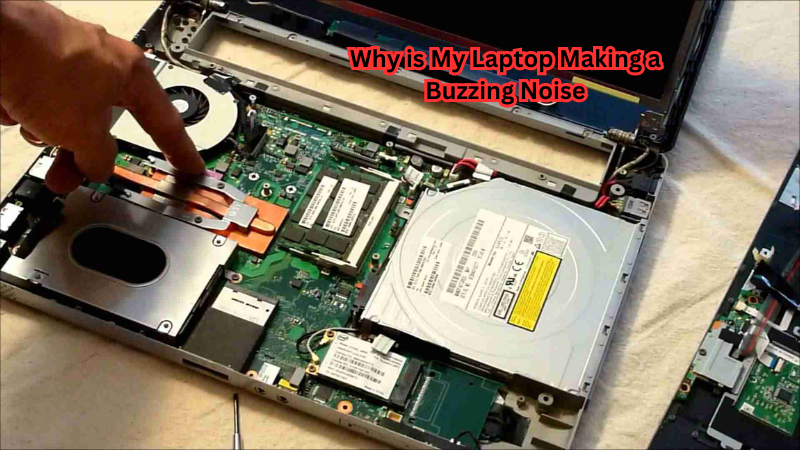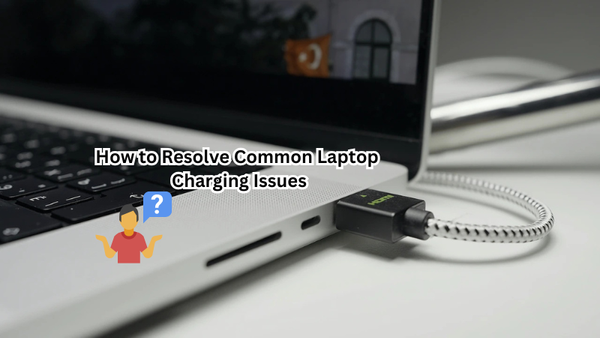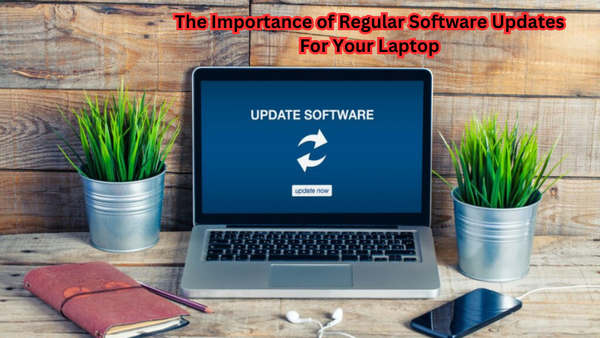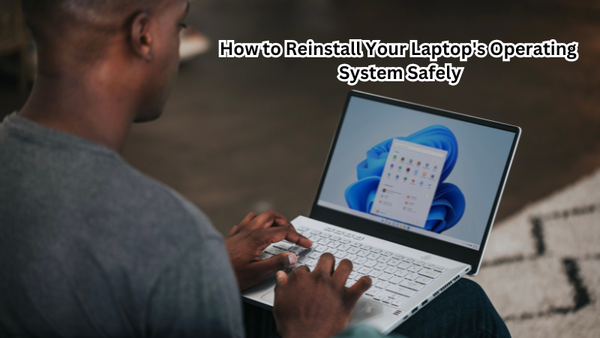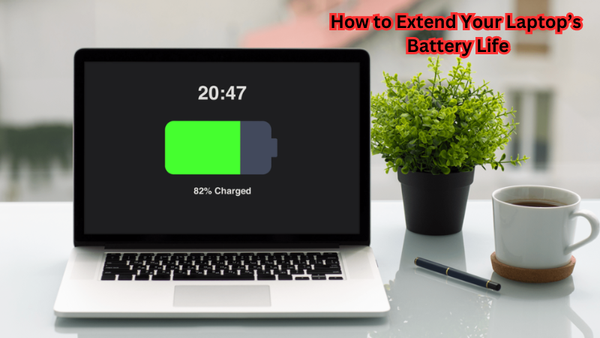Is your laptop troubling you with a persistent buzzing noise or an unsettling grinding sound?
These issues can stem from various sources like buzzing noises from cooling fans clogged with dust, coil whine, or even loose components. It's crucial to diagnose the root cause of the buzzing sound to prevent potential damage to your machine.
Whether your buzzing persists intermittently or constantly, this article aims to be helpful by guiding you through common causes and solutions. We encourage you to explore the potential issues further and invite your feedback on how these insights match your experiences.
Dive in to keep your laptop running smoothly without the buzz!
Importance of Identifying the Cause of Buzzing Noise
Ignoring a buzzing noise from your laptop can lead to costly repairs or even loss of data. Identifying the source of the sound is critical as it helps you determine if it's a minor issue that can be fixed at home or requires professional assistance.
Additionally, certain sounds may indicate an underlying hardware problem that needs immediate attention before it escalates into a more significant issue. Hence, it's crucial to understand and address any unusual noises coming from your laptop promptly.
Furthermore, a buzzing noise can be disruptive and affect your overall experience while using your laptop. It may distract you from work or cause discomfort if the sound is too loud. By identifying and fixing the root cause, you can eliminate these distractions and ensure a smooth, quiet operation of your laptop.
Common Causes: Why is My Laptop Making a Buzzing Noise
Now that we've understood the importance of identifying the cause of a buzzing noise in your laptop, let's delve into some common causes of these unsettling sounds.
Dust Buildup in Cooling Fans
One of the most common causes of a buzzing noise in laptops is dust buildup in cooling fans. When these fans get clogged with dust, they can no longer function efficiently, resulting in a loud grinding noise.
Apart from being annoying, this issue can also cause overheating and potentially damage your laptop's internal components. Hence, it's crucial to regularly clean your laptop's cooling fans to prevent any dust buildup.
Coil Whine
Coil whine is another common culprit behind buzzing noises in laptops. It occurs when there is an imbalance or high frequency in electrical currents passing through the components of your laptop.
This often results in a high-pitched whine or buzzing sound, especially when performing tasks that require a lot of power. While coil whine does not necessarily indicate any serious issues, it can be annoying and distracting. However, if the sound is too loud or persistent, it's best to consult a professional for further assistance.
Loose Components
Loose components inside your laptop can also cause buzzing noises. These sounds may occur when you move your laptop or press certain keys.
Loose screws, cables, or other hardware can vibrate against each other and create an unsettling grinding noise. In this case, tightening the loose component or seeking professional help may resolve the issue.
Hard Drive Problems
Your hard drive is responsible for storing data and running your operating system. If there are any issues with the hard drive, it can cause buzzing noises in your laptop.
This may include clicking sounds or a continuous grinding noise. These sounds may indicate that your hard drive is failing and needs to be replaced. However, before making any decisions, it's best to back up your data and consult a professional for a proper diagnosis.
Graphics Card Issues
A faulty graphics card can also lead to buzzing noises in laptops, especially if you hear these sounds while playing graphic-intensive games or using graphic design software. Similar to the hard drive, this issue may also require replacing the graphics card after seeking professional help.
This article helps identify the cause of the buzzing noise in your laptop. Remember, regular maintenance and prompt attention to any unusual sounds can go a long way in keeping your laptop running smoothly.
How to Fix Buzzing Noises in Laptops
Fixing buzzing noises in laptops can be a simple process depending on the cause of the issue. For dust buildup in cooling fans, you can try cleaning them with compressed air or a soft brush. However, if the noise persists, it's best to seek professional help for a thorough cleaning and inspection.
In the case of coil whine, there may not be a permanent fix as it depends on the specific components causing the imbalance or high frequency. However, you can try reducing power usage or changing power settings to see if that helps alleviate the noise.
Tightening loose components is also relatively easy and can be done at home with proper tools. However, it's always recommended to consult a professional if you're not confident in handling hardware components.
For hard drive or graphics card issues, it's best to seek professional assistance as these may require replacements and specialized knowledge. Remember, always back up your data before making any changes to avoid the potential loss of important files.
Other Potential Causes
Aside from the common causes mentioned above, there may also be other factors leading to buzzing noises in your laptop. These can include software bugs, outdated drivers, or even external interference from nearby electronic devices.
Additionally, if you notice the buzzing sound only occurs when your laptop is charging, it may be due to a hardware issue with the charger or power supply. In such cases, it's best to replace these components or seek professional assistance. Power button failure or a dying battery can also cause buzzing noises in some laptops.
The laptop makes a buzzing noise that does not seem to match any of the common causes mentioned above, it's best to seek professional help for a proper diagnosis and solution.
Tips for Preventing Buzzing Noises in Laptops
- Regularly clean your laptop's cooling fans to prevent dust buildup and potential overheating.
- Keep software and drivers up to date to avoid any bugs or glitches that may cause buzzing noises.
- Avoid exposure to extreme temperatures, as it can affect the performance of internal components.
- Back up your data regularly in case of any hardware failures or replacements.
- Use a stabilizer or surge protector for the charging cable to minimize external interference.
- Avoid placing other electronic devices near your laptop while it's in use.
- Handle hardware components carefully and seek professional help if unsure.
By following these simple tips, you can prevent buzzing noises in laptops and ensure optimal performance and longevity of your device.
Is Computer Buzzing Noise Harmful
In most cases, buzzing noises in laptops do not indicate any serious harm to the device. However, if left unaddressed, certain issues such as dust buildup or overheating can cause damage to internal components over time. Additionally, these sounds can be disruptive and affect your overall experience while using your laptop.
Therefore, it's best to address any buzzing noises promptly and regularly maintain your laptop to prevent potential damage and ensure smooth operation. If you're unsure about the cause of a buzzing noise or how to fix it, always seek professional help.
Moreover, taking proper care of your laptop and keeping it clean can not only prevent buzzing noises but also extend its lifespan. Regularly cleaning your laptop's cooling fans, keeping software and drivers up to date, and avoiding exposure to extreme temperatures can go a long way in maintaining the health and performance of your device.
FAQs
Should I worry if my PC is buzzing?
It depends on the type and frequency of the buzzing noise. If it's a low humming or whirring sound, it may not be a cause for concern. However, if the sound is loud or irregular, it's best to address it promptly.
Can fan noise damage my laptop?
Constant fan noise can indicate an issue with heat dissipation in your laptop, which can potentially damage internal components over time. It's best to regularly clean your cooling fans to prevent this from happening.
How often should I clean my laptop's cooling fans?
The frequency of cleaning your laptop's cooling fans may vary depending on usage and environmental factors. As a general rule, you should aim for at least once every three months, but if you notice excessive dust buildup, it's best to clean them more frequently.
Is it safe to open my laptop and check for loose components?
If you have proper knowledge and tools, it is relatively safe to open your laptop and check for any loose components. However, if you're unsure or inexperienced in handling hardware components, it's always recommended to seek professional help.
Conclusion
Addressing buzzing noises in your laptop promptly is essential to prevent further damage.
By applying the troubleshooting steps and solutions discussed in this article, you can tackle common sources of buzzing, such as dust-clogged cooling fans or coil whine. Regular maintenance and preventive measures, like cleaning and updating drivers, are beneficial in avoiding future issues.
However, if the buzzing persists or the cause seems complex, consulting a professional is advisable. We invite you to share your experiences or ask questions in the comments section to help others facing similar challenges. Stay proactive to ensure your laptop runs smoothly and buzz-free!
